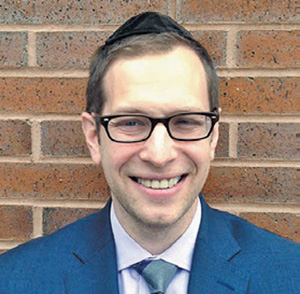
You know those amazing days you wish would never end? That’s exactly how Chana and Chezky Challah felt about Shabbos. Maybe it had something to do with their last name, maybe not. Either way, Chana and Chezky loved Shabbos so much they kept it longer than required. At first, it was starting Shabbos as early as possible each week. Then it became keeping Shabbos until Monday night. Finally, the Challahs reached the point of keeping Shabbos all day and every day. No cooking ever. No driving ever. No Fortnite ever (gasp)!
Chezky and Chana’s neighbors weren’t bothered by this; it was the Challahs’ business how to keep Shabbos in their own home. Everything was peaceful and everyone got along. That was, until Chana and Chezky decided it was time to spread their message.
This is why, on a regular Tuesday afternoon, a line of cars five blocks long was simply standing still in the middle of Main Street. At the front of the line stood Chezky, in his suit and tie, refusing to budge. “Please, no driving on Shabbos! Leave your cars! Walk home! Experience the forever Shabbos!” Behind the cars, Chana sat at a beautiful table full of Shabbos food. Chana looked completely at home, despite sitting in the middle of the street. Eventually, one man did leave his car, but not to walk home. Instead Rabbi Gordon, the rav of the community, stepped out onto the street and approached Chezky slowly. Rabbi Gordon put his hand on Chezky’s shoulder and spoke calmly and quietly. Chezky nodded and stepped back, allowing the cars to pass.
Despite this incident, Chezky and Chana kept trying to influence the community to adopt their ways. They marched past malls, stood in front of stores, and blocked buses, all while proclaiming the holiness of Shabbos. After a month, the entire neighborhood was fed up. A few important community members approached Rabbi Gordon and requested a meeting to end Chezky and Chana’s antics, and Rabbi Gordon agreed. So, on a Thursday night, the entire town packed into the school auditorium.
Rabbi Gordon sat on the stage with Chezky, Chana and the mayor. The meeting began with a dvar Torah from the rabbi, followed by the mayor speaking on behalf of the community. Finally, Chezky and Chana spoke about the importance of Shabbos. Afterward, community members shared their thoughts. Then the time came for Rabbi Gordon to decide. Would he allow the Challahs to continue their Forever Shabbos?
For 45 minutes, Rabbi Gordon sat quietly with his eyes closed. He remained completely still except for stroking his beard every few minutes. Eventually, he opened his eyes, stood up and prepared to announce his decision. The room was silent as Rabbi Gordon spoke. “Chezky and Chana, your love of Shabbos is beautiful. You have shown us how to be dedicated to Hashem and His mitzvot. However, Hashem gave us the Torah to make our everyday lives meaningful, not to hide from life. Therefore, I respectfully ask you to limit your Shabbos to two days a week, and to let your neighbors keep Shabbos as they wish.” A big sigh of relief spread through the room as the community members began standing up to leave. But Rabbi Gordon wasn’t done. “However,” spoke the rabbi into the microphone, “I have one more ruling.” Everybody froze and turned around. “The rest of us will follow in Chezky and Chana’s footsteps. For the next month, we will all keep Shabbos for three days!” The crowd started to mutter among themselves, not sounding too happy. Rabbi Gordon seemed to notice. “Please allow me a few minutes to explain my decision.”
Rabbi Gordon continued: “This week’s parsha begins with the mitzvah of Kedoshim tihiyu, the commandment to be holy. If the entire Torah is about being holy, why do we need a special mitzvah to be holy? One explanation is that Kedoshim tihiyu means to keep the lessons of the mitzvot even when not doing the mitzvot themselves. For Shabbat, this means to find time during the week to unplug, spend time with family, and to take a break from work. Perhaps keeping Shabbat for three days will help us appreciate this important idea.”
Rabbi Gordon’s idea was a big hit. After keeping Shabbat this way for a month, the community felt a deeper appreciation for Shabbos. They tried to live by the values of Shabbat during the week, particularly during the two days after Shabbat. From that day on, a new greeting could be heard throughout the town on Sundays and Mondays: Shabbat Shalosh!
Yair Daar is an assistant principal and the resident parsha storyteller at Yeshivat He’Atid. He can be reached at ydaar@yeshivatheatid.org.
By Rav Yair Daar











